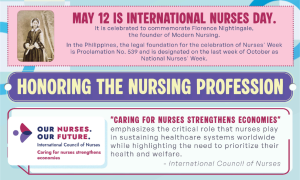COVID-19 has changed life as we know it. Businesses are finding ways to reinvent themselves, emphasis on sanitation is at an all-time high, and people are spending most of their waking hours at home. While these drastic changes can feel overwhelming for any person, there is no choice but to deal with this reality until either a vaccine or a cure becomes available.
Social distancing has also been enforced as a preventive measure given its effectiveness, so people have been compelled to remain indoors. While staying at home gives a strong sense of safety against the virus, this is certainly not the case for those who live with overly aggressive individuals.
Being in quarantine for extended periods can cause unanticipated shifts in one’s mental health and behavior, resulting in a surge of domestic violence cases during this time. This is a growing concern that needs to be addressed by raising awareness and helping those who are affected.
How Quarantine Influenced the Rise in Domestic Violence
According to the World Health Organization (WHO), one out of three women experienced physical or sexual violence in their lifetime. Since the changes brought by COVID-19 can significantly impact one’s mental well-being, those who are emotionally unstable tend to release tension in extreme ways.
To cope with the stress and anxiety caused by the pandemic, abusers impose irrational household rules, increase their consumption of alcohol, illegal or controlled substances, and even go as far as conducting physical or verbal harm to their housemates—sometimes both.
To make matters worse, the pandemic puts the victims at risk of exposure to the virus if they try to flee from their homes. The limited movement allowed during quarantine makes it difficult for them to call for help. Without proper intervention and treatment, this can result in other health complications, such as chronic diseases from stress, depression, and post-traumatic stress disorder (PTSD).
What to Do If You Are a Victim
Victims of domestic abuse must never blame themselves for what happened or are still happening to them. Acts of violence, such as threats, humiliation, and physical harm, are unacceptable behaviors that only one person should be held accountable: the abuser. To ensure that this vicious cycle is put to a halt, here are things a victim can do:
-
Reach out to authorities or helplines
-
Get support from friends or family
Friends and family are there for a reason. In case the tendencies of an abuser are starting to become more violent, it will do the victim good to let a loved one or a neighbor nearby know about the situation.
Aside from being someone to whom the victim can seek comfort from, a concerned person can also help devise a safety plan once the abuser starts hurling threats. Having a safe word or a signal to let them know of a potentially dangerous situation will allow them to call for help without the abuser knowing.
-
Avoid being isolated
-
Seek professional help
Sooner or later, the abuse will start taking a toll on the victim’s mental health. Do not hesitate to seek professional help. The trauma caused by domestic abuse can affect a victim’s life in several ways, and not undergoing treatment can cause more serious mental health issues down the line.
There are many who have gone through the same bad experiences. Engaging in a group therapy session or individual counseling can take a huge load off a recovering victim’s shoulders. It is also a way for them to meet new people who went through similar experiences and friends they can confide to.
Don’t Let Domestic Violence Be Part of the New Normal
The world is currently battling two pandemics, COVID-19 and domestic violence. While you may be fortunate enough to stay safe in your home during this period, others have to deal with the stress of living with an abusive individual.
If you are a victim of domestic violence or know someone in need of help, please do not hesitate to reach out to the right authorities. For physical, mental, and sexual abuse victims, reach out to Makati Medical Center’s Psychiatry Section, OB-GYN Department, or Emergency Department for immediate assistance.









